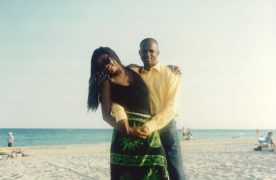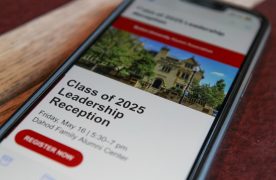The Citgo sign that resides directly above 660 Beacon St. is a beacon of hope for the city of Boston and its residents. It is a beacon for the marathon runners who can see it as they crest their final hill on the route and enter downtown. It is a beacon for the Red Sox players who can view it clearly from home plate just across David Ortiz Bridge. And, selfishly and most importantly, it is a beacon for the Boston University students who view it as a sort of gatekeeper of campus, watching over us omnisciently.
BU reached a deal with Related Beal in August, entering a long-term ground lease for several of its Kenmore Square properties (one of which being the offices of The Daily Free Press, a tenant of the university), including that which supports the beloved sign. Official decisions regarding the sign have not been solidified, but residents and students alike are keen to preserve the sign.
In a Wednesday meeting, the Boston Landmarks Commission disclosed a draft being proposed that would restrict changes to the sign, according to a Boston Globe article. Chair Lynn Smiledge was particularly adamant in drafting plausible restrictions.
“Ideally, we’d want nothing to change. That’s not going to happen. So how do we preserve what’s most important about the sign?” she said in the article.
Change is inevitable and something that must be embraced for a city to progress. That being said, not everything needs to be irrevocably changed.
The Citgo sign is 60 feet by 60 feet and has endured five hurricanes, all while illuminating the sky from dusk to dawn. Still officially owned by the eponymous company but residing on BU property, the sign underwent a renovation of sorts in 2005, replacing the traditional neon tubes with LEDs. It now burns only brighter.
Separating Citgo as a corporate entity from the sign is necessary to understand the nostalgia associated with the sign. Citgo has a notorious history intertwined with the Venezuelan government that owns the corporation. The government is distinctly socialist and under the rule of Hugo Chavez, who serves as an oppressive dictator. Certainly, the corporation’s roots are far from admirable, but Boston is perhaps one of the few places that reaps the benefits of Citgo. According to a Bloomberg article, Citgo has supplied “free or cut-rate heating oil to homeless shelters and the needy through a Boston nonprofit run by Joseph P. Kennedy II” since 2005.
At this point, the sign has rightfully earned its place in Kenmore Square and in the hearts of millions. On Smiledge’s list of required characteristics is “unobstructed visibility” from points around the city, which is a primary concern. After all, the sign cannot be a North Star if it cannot be seen. This point is incredibly important, and the Boston Planning and Development Agency needs to make this a priority.
History and significance are the primary motivators behind promised preservation of the sign. Baseball legend Joe Carter used to look to the sign for inspiration while at bat, reading it as “C-it-go.” It has appeared in countless movies, including the great Field of Dreams. Its presence is enduring and expected, and compromising that in any way seems like a travesty of Boston’s culture.
The mix of old and new is what makes our city what it is. Back Bay’s brownstones are contrasted against the sleek monoliths of the financial district. The winding streets of Beacon Hill are just across the river from the steel-dominated Kendall Square. The Citgo sign can be maintained while still realizing the potential visions of the new owners.
Certainly, the Kenmore properties could use an update. However, it needs to be remembered that the Citgo sign does not belong to BU students but to the city as a whole.














Fact Check: Hugo Chavez has not been the president of Venezuela since 2013
Fact Check: Hugo Chavez has not been the president of Venezuela since 2013.
“…it needs to be remembered that the Citgo sign does not belong to BU students but to the city as a whole.”
Meh, close enough for grasping establishment Marxists and the useful idiot followers.
(Never mind the slip: “Still officially owned by the eponymous company…”)